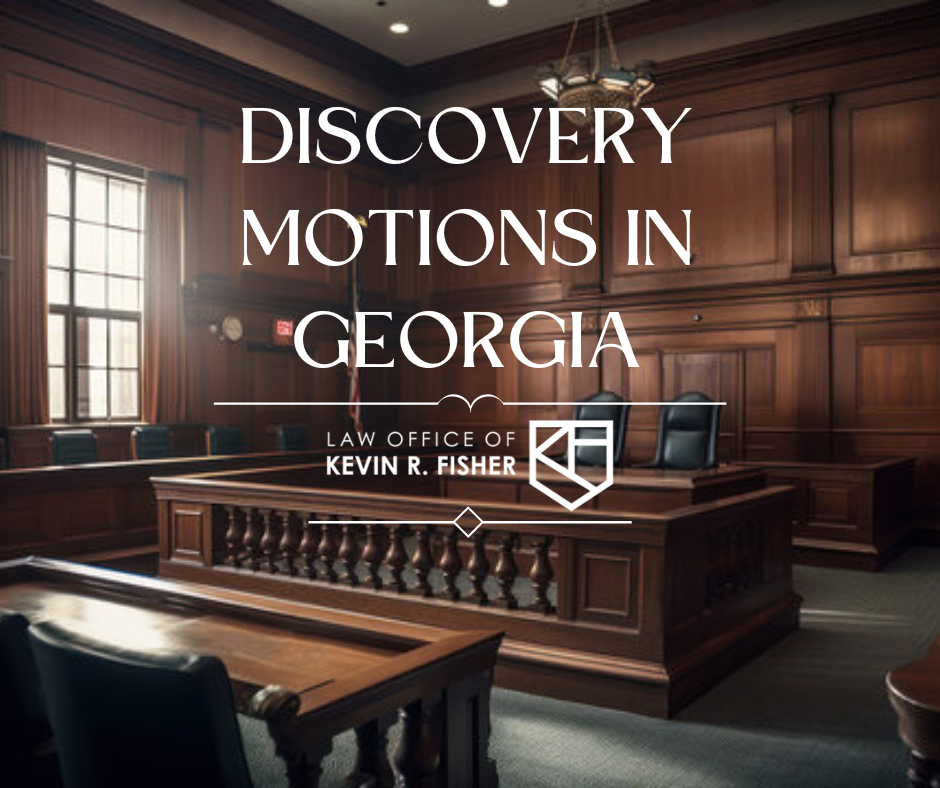Discovery motions are important to ensure you have all the information from the State to prepare for trial. It is important that you have an experienced criminal defense attorney that will request discovery from the State and use the information to build a strong case. Keep reading to learn more about discovery motions in Georgia!
What is discovery?
Discovery is the process that parties use before trial to gather information to prepare for trial. Discovery is an important part of a criminal case because it allows the Defendant to gather the information that the State may have against the Defendant and gives the Defendant a glimpse into the case being built against them. The discovery process also narrows the issues that will be addressed at trial so that the trial is succinct.
What is a discovery motion in Georgia?
A discovery motion is a written request to receive discovery from the State in a criminal case. In Georgia, there is no automatic right to discovery. Instead, the Defendant must request discovery and explain why the evidence is relevant to the criminal case.
Discovery can include information that is not privileged and relates to the criminal case. Privileged material means any communication between the attorney and the client that is made for the purpose of obtaining legal advice. In other words, if the information was not gathered for this purpose, then the information can be disclosed after a discovery request is submitted.
What are some examples of discoverable material?
In Georgia, discovery requests can include jail calls, videos, autopsy reports, medical examiner reports, police reports, interviews by police, photographs, ballistics reports, and more. However, what is allowed to be requested during the discovery process differs depending on whether the case is civil or criminal. For example, in a civil case, the Georgia Court of Appeals found that a liability insurance policy of a party to the case was not admissible as evidence.
When is discovery required?
Under O.C.G.A. § 17-16-4, the prosecuting attorney must disclose, no later than ten days before trial, to the Defendant all discovery, including:
- Any statement made by the Defendant before or after arrest to any law enforcementofficer or member of the prosecuting attorney’s staff;
- Any statement made by the Defendant while in custody;
- Any statement made by coconspirators that are attributable to the Defendant and admissible against the Defendant at trial;
- The Defendant’s Georgia Crime Information Center criminal history;
- Photograph, books, papers, documents, objects, audio and visual tapes, films, and recordings that the prosecuting attorney intends to use at trial; and
- Physical or mental examinations, psychological or psychiatric treatments of any victim or witness, and scientific tests or experiments the prosecuting attorney intends to use at trial.

If the prosecuting attorney fails to disclose material, exculpatory information to the defense, this will be grounds for the judge to grant a mistrial. This is known as the Brady rule, named after the landmark Supreme Court case, Brady v. Maryland. In criminal law, exculpatory evidence is evidence that is favorable to the defendant or could excuse the fault or guilt of the Defendant. Material information is any information that is significant enough to determine an issue.
Have questions? Give me a call.
If you or your loved one is charged with a criminal offense, I am here to help. I have decades of experience representing people charged with misdemeanors and felonies, and I will make sure you receive the best defense possible. If you need legal help, give me a call today!

